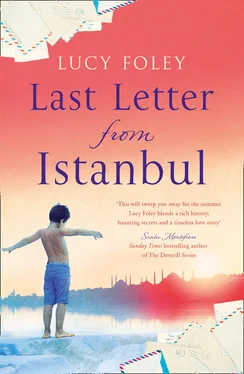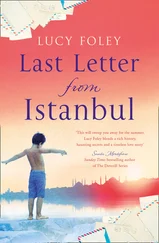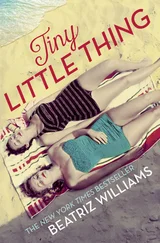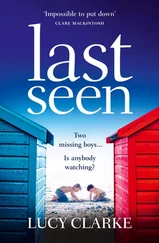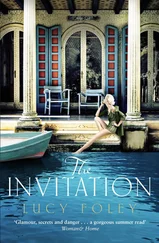Concentrating intently, frustrated by his own slowness, he puzzles out the rest of it. Paprika – he knows that, the bright powder made from peppers. The words, he begins to realise, describe a larger whole. A dish. Chicken with Walnuts and Paprika. He can imagine it, yes. He closes his eyes and summons the flavours with a great effort of imagination. The tender flesh of the meat, the bitter of the nuts, the sweet smoke of the spice.
The idea of the dish in his head is a kind of pleasurable agony. It is almost as good as eating it. Of course, one does not have the fullness in the belly afterward. But he hardly ever has that anyway, cannot remember a time when he has felt fully sated by what he has been given to eat.
Now the magic of this imagined meal is used up.
He turns the page, to discover the next delight. Chicken – easy, he had the shape of the word in his mind now. Chicken with … he squints at the word. Figs . That is the best time of the year, when the tree in the schoolyard yields its fruit. In the time of worst hunger they had been everything to him. Less filling than bread, but more so than the aubergine skins he had scavenged from the bins. There are two kinds: white and purple. The latter are bigger but the white are finer-flavoured. Tiny, fragrant morsels. They are his favourite. Unfortunately they are the birds’ favourite too. He was almost tearful with frustration, upon leaving lessons, to discover that they had got to so many of them before him. And they were so wasteful. They would eat part of a fruit, and leave the rest hanging upon the branch to dry out or rot. They would scatter half of what they stole upon the ground. He would eat these remains, or collect them in his pockets.
He reads on, his mouth wet with longing, his stomach protesting, his mind filling with impossible fantasies.
Nur Nur George The Boy The Prisoner The Traveller Nur The Boy Nur George Nur The Prisoner George Nur The Prisoner The Boy Nur George The Boy The Prisoner The Traveller The Boy Nur George The Boy Nur Part Two The Prisoner Nur George The Traveller The Boy Nur George The Prisoner Nur George Nur The Prisoner Nur Nur The Prisoner The Traveller Nur George Nur George Nur The Prisoner George Nur George The Traveller Nur George Snow The Boy The Prisoner Nur The Traveller Nur Spring Nur George The Prisoner Nur George The Boy Nur Acts of Destabilisation George The Prisoner George The Prisoner George Nur George Nur Nur Together George Then Nur George The Prisoner The Traveller Nur The Traveller A Note on Names Acknowledgements Discover More from Lucy Foley About the Author Also by Lucy Foley About the Publisher
There are difficult negotiations with the linen buyer. ‘Every week I have another woman coming to me with a story like yours, hanım . Great families who have lost everything, fallen on poor times. And all their work is beautiful.’
‘But I came to you first – that must count for something?’
He seems not to have heard. ‘The Russians! They come to me straight from the ships laden with great bundles on their backs: silks from Paris, the finest cashmere shawls. They are such poor wretches now: no homeland, no future. You must count yourself lucky. There are others who are far more unfortunate. We have all lost a great deal.’
It is true. Every day new inhabitants arrive, fleeing the ongoing consequences of the Great War, the revolution in Russia. Dispossessed, desperate. Regular flurries of chaos at the quays: vast carriers arriving with human cargo. Some filtered into the system of Allied camps. Others absorbed by the city, disappearing with little trace. But she hopes that he sees the long look she gives his stall, occupying four times the space it once did; the smartly refurbished sign with its gilt lettering, the beautiful new silver samovar from which he has declined to offer her any tea.
As she leaves the bazaar she sees the Allied soldiers, buying trinkets. It is not enough for them to have occupied this place; they want to take a piece of it back with them. A souvenir. A war trophy. Exotic, but harmless, like a muzzled dancing bear. Her linens will be stowed in trunks, will make the long journey back across the breadth of Europe to decorate sideboards and tables in houses in London and Paris. She likes, in more optimistic moments, to think of this as a colonisation of her own.
Their uniforms are clean but she sees them drenched in blood. How many men have you killed, she asks, silently, of some sunburned boy as he holds a fake lump of amber up to the light with an unconvincingly expert air. And you? – of the fat officer fingering women’s sequinned babouches – did you slaughter my husband, at Gallipoli? My brother, in the unknown wasteland in which we lost him?
She thinks of Kerem, her lost brother, every day. There are reminders of him, everywhere – particularly in the schoolroom where it should be he who stands in front of the pupils, not her. But it is more visceral than that: it exists in her as a deep, specific ache, as though she has lost some invisible but vital part of herself.
With the loss of her husband, it is different. She can go whole days without thinking of Ahmet – and then remember with a guilty start. It is not that she does not care, she has to remind herself. It is that all of it – him, herself as a bride and then briefly as a wife, the night that followed – all seem abstract, intangible as a dream. Once she found herself rooting through the chest of clothes in the apartment, desperate to find her wedding outfit. She thought the sight of it might make her feel the grief she was supposed to feel. Because she grieves him only as she might the loss of a stranger. But then that was what he had been – even in those two weeks as husband and wife before he left for the front. When she thinks of Ahmet she thinks, with genuine sadness: how terrible for his mother. What a waste of young life. She does not think of it, not at first, in relation to herself. What sort of a widow does that make her?
On the ferry back she stays on past the stop at Tophane where she would normally disembark for home. As they cross the great channel of the Bosphorus she watches the shore of Asia approach and feels her skin prickle like someone about to commit a crime. Upon the opposite bank, growing visible now, is the white house.
She should not do this. She knows no good can come of it. A destructive thing. This instinct of hers, however, has overwhelmed reason.
The worst thing was that they took it, and did not use it. The final insult, to leave it gathering dust, like the skeleton of one denied the burial rites.
Her father – in his whimsical way – once described the house as a woman who had lain down beside the water for a rest that had become endless slumber. This idea, as with certain things heard in childhood, ignited in her mind. Even now she cannot help but see the sleeper, the cluster of trees that form her wild dark hair, the small jetty her hand trailing through the water. Nur feels, looking at her, a sense of betrayal. What luxury might it have been, to have slept through all of this without the least concern? She feels the same way about the stray cats she feeds. When she sees the tortoiseshell tom stretch himself out on the sun-kindled tiles of the roof opposite she knows that she is witnessing a contentment that for any human, especially one living here, would be impossible to obtain.
Her eyes never leave the house. As the ferry shudders its way toward the dock of the station she is certain that she catches a movement in one of the downstairs windows. This is impossible, of course – it must have been a reflection. It has remained empty, useless, all this time. Still, the animal part of her mind has been worried by it, and she finds herself watching for more movement. She thinks it was in the haremlik , the women’s quarters, the domain over which her grandmother presided like a queen. Well. There are so many memories confined in there that perhaps she really did see some flicker of the past.
Читать дальше
